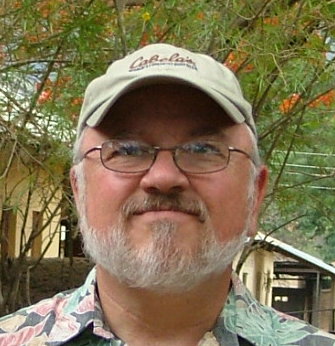Fortunately, Colts fans have too much sports savy to confuse mere Sunday rituals with real football. Unfortunately, Jesus fans haven't always been able to make the distinction between mere rituals and real faith. Mere rituals are powerless to change real life. The power to affect and influence real life requires the exercising of real faith. When John the Baptist was languishing in prison he began to doubt the identity of Jesus, so he sent a couple of his disciples to ask Jesus if he was the REAL thing. Jesus replied, "Go and tell John what you see: The blind receive sight, the lame walk, those who have leprosy are cured, the deaf hear, and the dead are raised, and the good news is preached to the poor," (John 11:4-5) Jesus knew that the authenticity of his claims was irrevocably tied to the quality of his actions. The precision, and even the passion with which we do our rituals (whether Presbyterian, Baptist, Anglican, Catholic or Pentacostal rituals) cannot measure the authenticity of our faith. Rituals move nothing. Faith moves mountains! With more than 2 Billion Christians in the world you would think we could do some serious damage to the other team. The reason we do so little damage to the other team is because most of us are content to sit in the stadium singing fight songs and chanting old famliliar cheers while the real game is being played out on the streets. -- Bob
Saturday, June 09, 2007
Fortunately, Colts fans have too much sports savy to confuse mere Sunday rituals with real football. Unfortunately, Jesus fans haven't always been able to make the distinction between mere rituals and real faith. Mere rituals are powerless to change real life. The power to affect and influence real life requires the exercising of real faith. When John the Baptist was languishing in prison he began to doubt the identity of Jesus, so he sent a couple of his disciples to ask Jesus if he was the REAL thing. Jesus replied, "Go and tell John what you see: The blind receive sight, the lame walk, those who have leprosy are cured, the deaf hear, and the dead are raised, and the good news is preached to the poor," (John 11:4-5) Jesus knew that the authenticity of his claims was irrevocably tied to the quality of his actions. The precision, and even the passion with which we do our rituals (whether Presbyterian, Baptist, Anglican, Catholic or Pentacostal rituals) cannot measure the authenticity of our faith. Rituals move nothing. Faith moves mountains! With more than 2 Billion Christians in the world you would think we could do some serious damage to the other team. The reason we do so little damage to the other team is because most of us are content to sit in the stadium singing fight songs and chanting old famliliar cheers while the real game is being played out on the streets. -- Bob
Wednesday, June 06, 2007
 Tell Me A Story
Tell Me A StoryDonald Miller is in a room of 500 or 600 people, all waiting for him to speak. But as he steps behind the podium and begins, his voice seems more suited to a small group of five or six. "Okay," he starts, "what are some of your favorite movies?"
A murmur of response—"Come on!" Miller encourages—and then people start shouting out titles. The Matrix! A Beautiful Mind! The Straight Story! Finding Nemo! The audience oohs and aahs at each other's choices. Little Women! Napoleon Dynamite! It's a Wonderful Life! The shouting goes on for a while; they forget this is a workshop.
"Okay, great," Miller says, bringing attention front and center. "Now, call out your favorite parts of the Nicene Creed."
Awkward giggles throughout the room—they know they've been had. Then one man pipes up: "It's a wonderful life!"
Miller laughs along with, maybe louder than, everyone in the room. He's enjoying that his point was made for him: We know our movies better than we know our creeds. And now self-help banalities—Your life can be wonderful—compete for our attention with the classic truths of the Christian story.
In the next half hour, Miller delivers a variation on a theme ascendant in evangelical Christianity: Truth is rooted in story, not in rational systems. The Christian mission is not well served when we speak in terms of spiritual laws or rational formulas. Propositional truths, when extracted from a narrative context, lack meaning. "The chief role of a Christian," he says, "is to tell a better story."
You can read more HERE
Subscribe to:
Comments (Atom)

